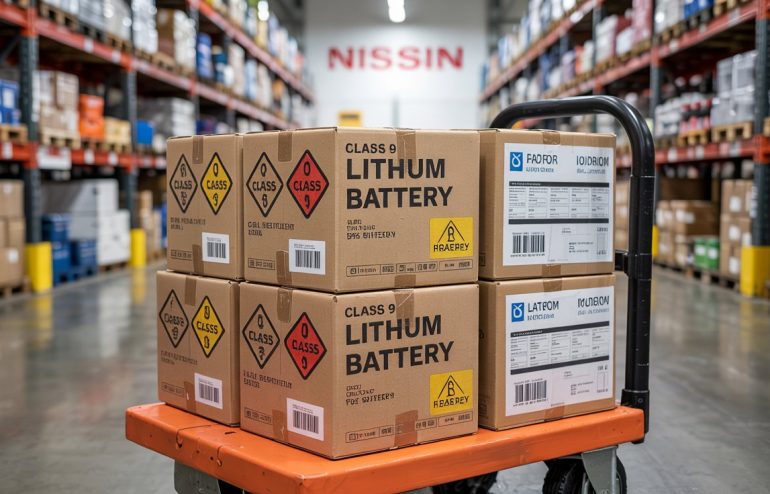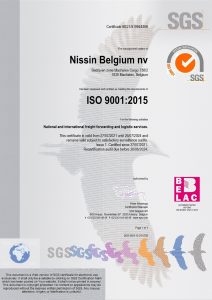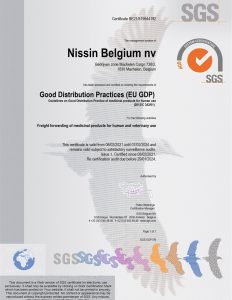Why Proper Packaging and Labeling Matters for Lithium-Ion Battery Transport
In the modern world, lithium-ion batteries power everything from smartphones to electric vehicles. As demand rises, so does the need for careful and compliant shipping practices. Proper packaging and labeling are not just formalities—they are critical steps in maintaining safety, protecting shipments, and adhering to international standards. For businesses involved in lithium-ion battery shipping, understanding these aspects is vital for smooth operations and risk management.
The Growing Importance of Lithium-Ion Battery Transport
Lithium-ion batteries are classified as dangerous goods because they carry a risk of fire, explosion, and chemical leakage when improperly handled. As a result, lithium-ion battery transport is subject to stringent rules globally. Carriers, manufacturers, and shippers must pay close attention to every detail, from how the batteries are packed to the labels displayed on their containers.
Compliance is not optional. Organizations that fail to follow lithium battery transport regulations could face costly fines, shipment delays, damaged reputations, or worse—serious accidents. Safe transport practices start with a complete understanding of how to package and label these powerful energy sources correctly.
Packaging Lithium-Ion Batteries: A Critical First Step
When it comes to packaging lithium-ion batteries, the goal is to minimize the risk of short-circuits, overheating, and physical damage during transit. Several important steps must be followed:
1. Use strong, approved materials: Batteries should be housed in robust containers that can withstand shocks, vibrations, and pressure changes.
2. Separate batteries: Batteries should not come into contact with each other or with conductive materials. Dividers, non-conductive cushioning, and sealed bags are typically used.
3. Protect terminals: Terminal ends should be covered to prevent accidental contact, which can trigger short-circuits.
4. Manage damaged batteries carefully: Batteries that are defective, recalled, or damaged require special handling and may even need different packaging based on their condition.
Selecting the right packaging is essential for lithium battery shipping compliance. Organizations that prioritize high-quality, regulation-compliant packaging significantly lower their risks during transport.
Labeling Lithium Batteries for Transport: Why It Matters
Correct labeling communicates crucial information to all parties involved in shipping and handling. Labeling lithium batteries for transport helps carriers, customs officials, and emergency responders identify the cargo quickly and react appropriately in case of an incident.
Key labeling practices include:
1. Display UN Numbers: UN3480 for standalone lithium-ion batteries, and UN3481 for batteries packed with or contained in equipment.
2. Use hazard labels: Include the lithium battery handling label, Class 9 hazard label, and cargo aircraft-only label if necessary.
3. Add shipping documentation: Depending on the size and configuration of the shipment, a dangerous goods declaration may be required alongside the labeling.
Poor labeling can cause significant shipment delays, rejection by carriers, or violations of lithium battery shipping requirements. Companies must stay updated with the latest guidelines issued by regulatory bodies like the International Air Transport Association (IATA) and International Maritime Organization (IMO).
Staying Compliant with Lithium Battery Transport Regulations
Global regulatory frameworks for lithium battery shipments are complex and frequently updated. Compliance requires attention to several areas:
1. Mode-specific rules: Air, ocean, and ground transportation each have unique regulations.
2. State of charge limits: Batteries often must be shipped with a state of charge less than 30%, especially for air transport.
3. Special provisions: Specific exceptions exist for small batteries, but many still require labels and specialized packaging.
4. Training requirements: Staff involved in lithium-ion battery shipping must be trained to recognize and apply the latest requirements correctly.
Following lithium battery shipping compliance standards protects the safety of transportation networks and the communities they serve. Investing in training, professional advice, and quality materials for packaging and labeling is no longer optional—it’s a necessity.
Consequences of Non-Compliance
Non-compliance carries serious consequences. At a minimum, shipments may be delayed, causing financial losses and strained client relationships. Worse, incorrect packaging lithium-ion batteries or improper labeling could lead to accidents during transport. Fires involving lithium-ion batteries are extremely difficult to extinguish and can cause catastrophic damage to aircraft, ships, and warehouses.
Regulators worldwide are increasing inspections and audits related to lithium battery shipping requirements. Businesses caught in violation may face fines, penalties, or restrictions on future shipments.
Trusting Experts for Safe Lithium-Ion Battery Shipping
Given the complexity and risks associated with lithium-ion battery transport, many businesses choose to work with logistics experts specializing in this field. Companies like Nissin Belgium’s LIB Village offer tailored solutions focused on meeting packaging, labeling, documentation, and compliance needs with precision.
Partnering with experienced professionals helps businesses maintain a proactive approach to lithium battery shipping compliance. It allows them to move their products safely and efficiently, without falling into costly regulatory traps.
Proper packaging and labeling are not mere details in the world of lithium-ion battery transport—they are critical safeguards that protect businesses, transport workers, and end-users alike.
To streamline your lithium-ion battery shipping processes and stay fully compliant with international standards, partner with a specialized logistics provider who understands the complexities of dangerous goods transport and can ensure safe, efficient, and regulation-compliant delivery across borders.
Our team is ready to assist you—please call us at +32 2 751 44 99 or email your requirements to HowCanIHelpYou@be.nissin-eu.com for prompt and professional support.






